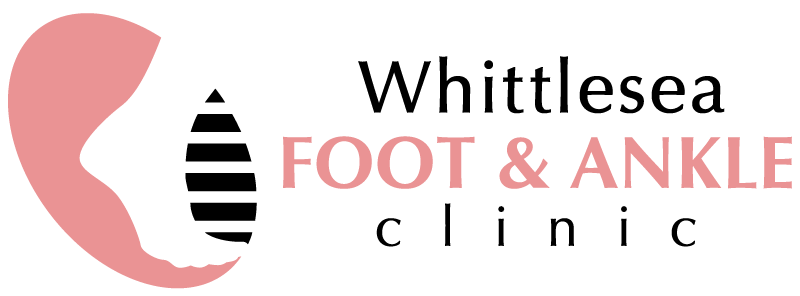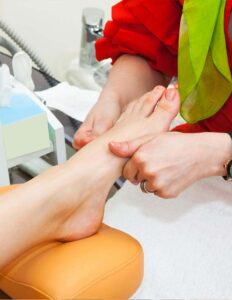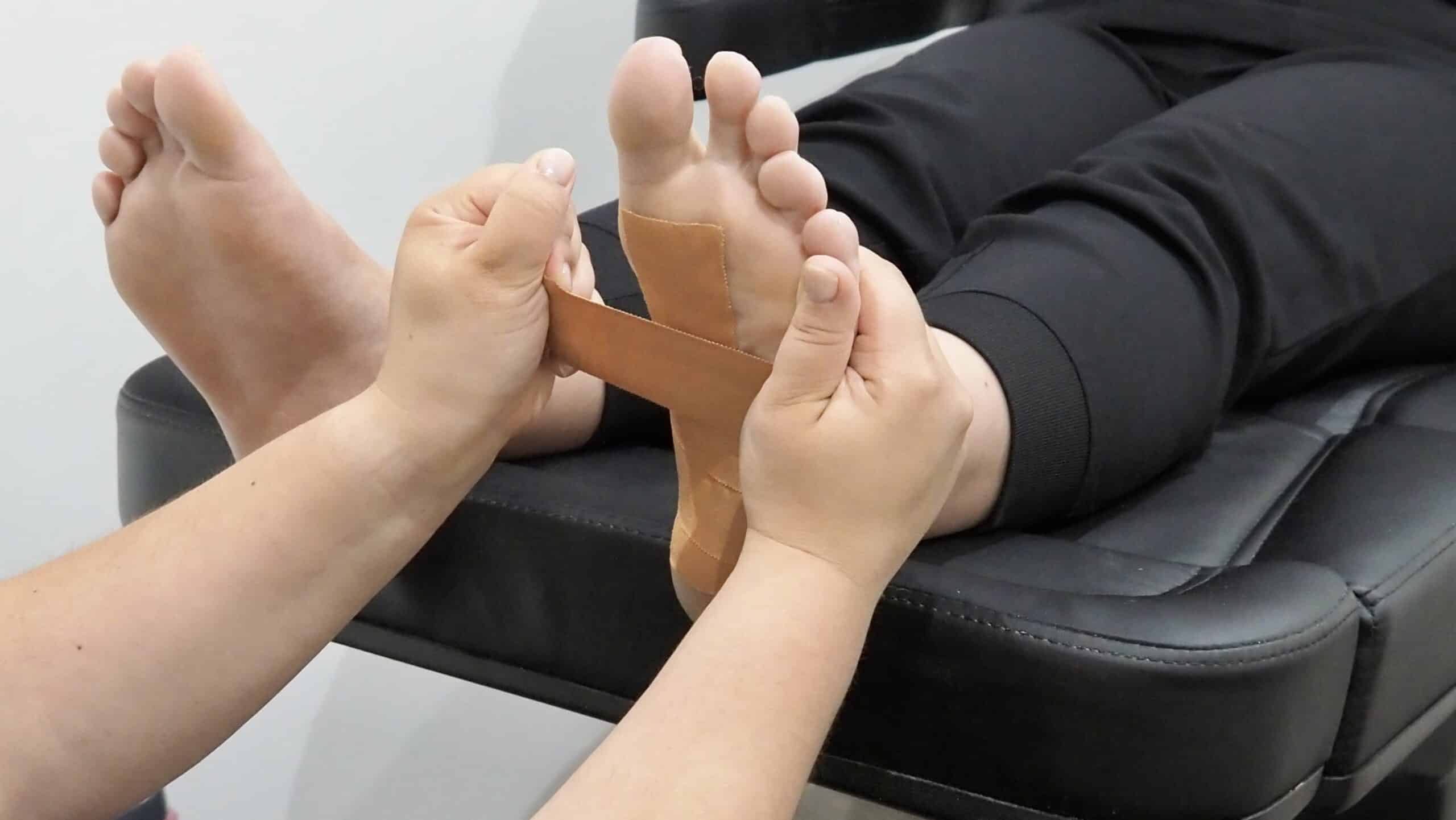These types of infections compromise over 50% of all nail diseases!
Onychomycosis occurs from an overgrowth of fungus beneath the toenail or fingernail. Fungi love warm, moist environments which is why this infection affects toenail more often. Having our feet confined into shoes and socks is a common way to contract onychomycosis, as well as coming into contact with somebody with a fungal nail condition or from a nail salon that hasn’t sanitised or sterilised their tools.
Fungal nail infections are more common for individuals over the ages of 65 years, immunocompromised patients and those with diabetes.
What do I look out for?
Onychomycosis may affect multiple nails or a single nail, however, most commonly affecting the first toenail. Clinical features that can present include:
- Lifting of the end and sides of the nail
- Yellow, white or grey discolouration
- Jagged and crumbling at the end of the nail
How do we prevent onychomycosis?
- Avoid excessive sweating within shoes and socks (change socks during the day if required).
- Dry feet and in-between toes after showering
- Wear clean and fresh shoes
- Always wear thongs in communal swimming pools or showers
- Keep nails short to avoid trauma to the nails
- Reduce the use of nail polish
- Only get manicures and pedicures from reputable salons
How do we treat onychomycosis?
Fortunately there are multiple ways you can treat a fungal nail infection, however the infection can be very stubborn so persistence is key.
Over-the-counter treatment is an option that is typically applied to the top of the nail to kill the surrounding fungus. Most will contain an active ingredient called terbinafine hydrochloride which is a chemical shown to fight against fungal infections. Other treatments include natural products that contain natural antifungal properties such as tea tree oil or white vinegar.
Your doctor may be able to give you a prescription for oral medication if fungal infection is confirmed with a culture test and other treatments have been ineffective. Depending on the severity, the use of medication might be recommended for many months.
If you have any questions about onychomycosis or wanting to know more, feel free to give us a call on 8468 2411 or book online here.










